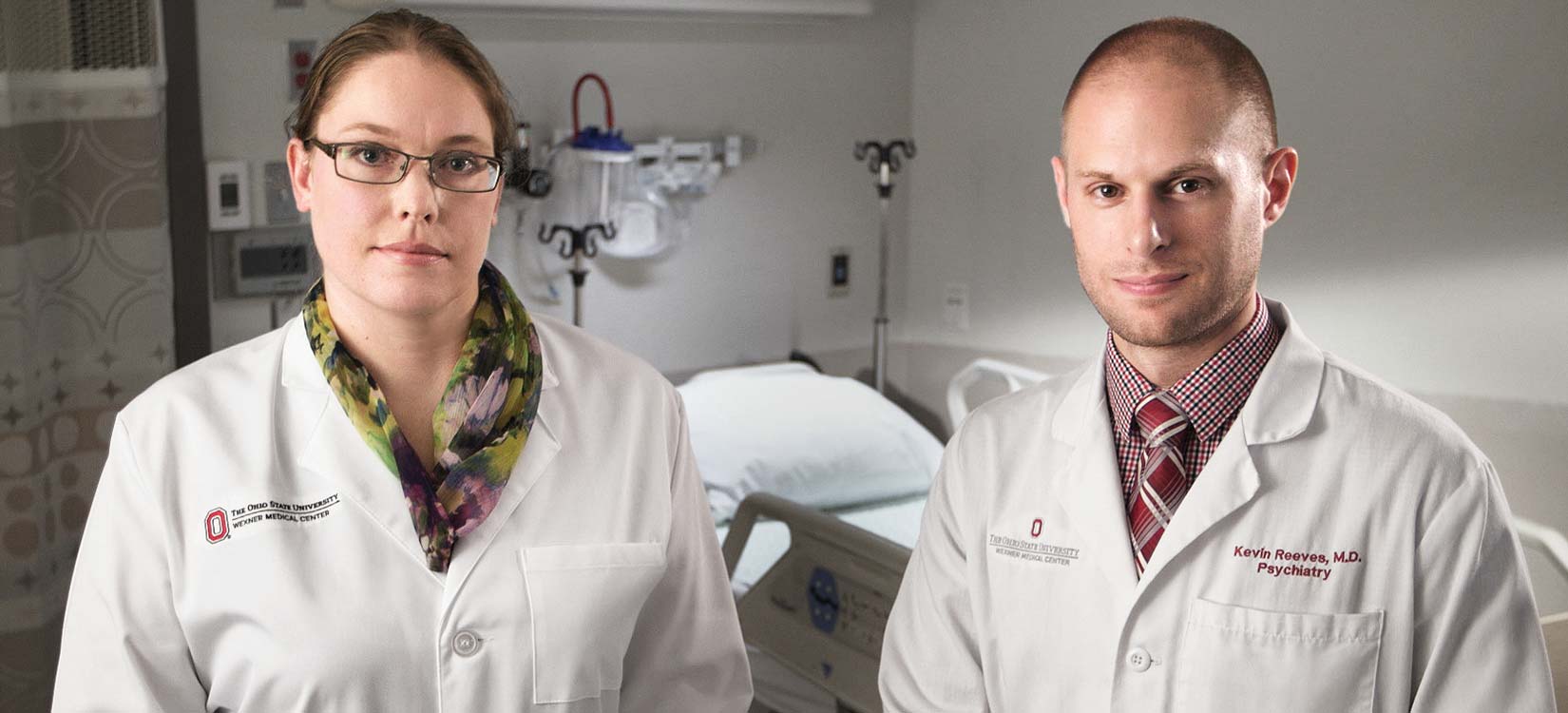Transcranial magnetic stimulation shows promise in treating mood disorders
 For some people with depression, traditional treatments such as medication or psychotherapy are not as effective as desired. To help these individuals, clinicians at Ohio State's Harding Hospital are offering a promising alternative – transcranial magnetic stimulation (TMS).
For some people with depression, traditional treatments such as medication or psychotherapy are not as effective as desired. To help these individuals, clinicians at Ohio State's Harding Hospital are offering a promising alternative – transcranial magnetic stimulation (TMS).
"Transcranial magnetic stimulation can treat a variety of symptoms associated with neurologic and psychiatric disorders. Here at Ohio State, we use TMS to treat both internal and external referrals of patients with refractory major depressive disorder," says Kevin Reeves, MD, assistant professor in the Department of Psychiatry and Behavioral Health.
TMS therapy is a non-invasive outpatient service in which rapidly alternating magnetic pulses stimulate prefrontal regions of the brain. Treatment consists of hour-long TMS sessions, five days a week over the course of four-to-six weeks. During TMS sessions, patients remain awake and are generally able to resume regular actives after each session.
Patient response has been overwhelmingly positive. Most patients experience symptom improvements and some have a complete remission. "We have had patients with depression that have been undergoing traditional drug-based treatments for months or years without improvement," says Dr. Reeves. "After TMS, they say they feel as if they have 'woken up.'"
Dr. Reeves is one of the six TMS-certified physicians that make up the Ohio State Harding Hospital TMS team. With the support and expertise of Wexner Medical Center clinicians, the TMS team has the capacity to treat a large volume of patients with diverse backgrounds, illnesses and lifestyles. Planning is under way for TMS and other neurotherapeutics to be incorporated into broader comprehensive care plans at Ohio State. This will make neurotherapeutics more accessible to patients and foster greater research into other applications of TMS and similarly non-invasive neurostimulation techniques.

